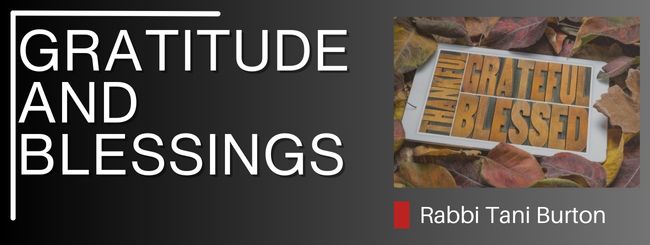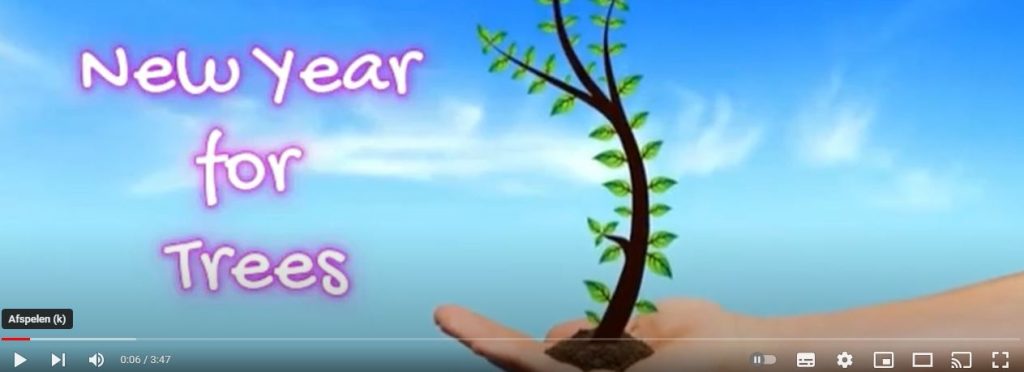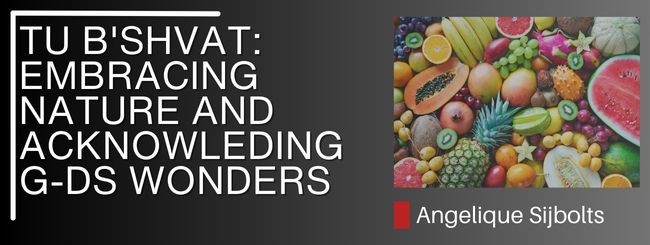בס”ד
In this blog we will explore the beauty of Tu B’Shvat from a Noahide perspective, celebrating nature, acknowledging G-d’s wonders, and fostering harmony in a short journey of connection and appreciation.
In Judaism, there are four Rosh Hashanahs (New Years):
- The 1st of Nissan is the New Year for kings and festivals.
- The 15th of Elul is the New Year for the tithing of animals (according to Rabbis Elazar and Shimon, this is on the 1st of Tishrei).
- The 1st of Tishrei is for counting years, the Jubilee and Shemitta cycles, and the tithing of trees and produce.
- According to the yeshiva [school] of Hillel, on the 15th of Shvat, Tu B’Shvat.
New Year for the trees is significant for Jews to be able to give Terumah, which is linked to the seven-year Shemitta cycle. In this cycle, portions of the produce are allocated to different groups, such as the Kohanim, Levites, and the poor. It’s crucial that only fruits from the specific year are given to, for example, the Levites, and these cannot include fruits from the year designated for the Kohanim. Having a reference point for when the new year for the new fruits begins is important. As the first fruits in Israel are expected to grow and ripen around February, the 15th of the month of Shvat serves as a logical moment for the New Year for trees.
This reference point is also essential for the fruits of newly planted trees, as it is forbidden for Jews to consume fruits from a tree younger than three years. Remembering when each tree was planted can be impractical, so the 15th of Shvat is used as a reference point. In Maimonides’ Mishneh Torah in chapter 4 halacha 15, In the context of Noahide laws, it is understood that a Noahide residing in the Land of Israel has the option to voluntarily offer Terumah. This act, however, does not hold the formal status of Terumah if the individual resides outside the Land of Israel. Nevertheless, for a Noahide residing in the Land of Israel who chooses to give this type of tithe voluntarily, there is a commendation and reward associated with such a practice.
| When a gentile separates terumah from his own produce, according to Scriptural Law, the separation is not effective, because he is not obligated to do so.45 [Our Rabbis] decreed that his separation should be effective, because of the wealthy,46 [i.e., they were fearful] lest the money belong to a Jew and he say that it belongs to a gentile to make it exempt. We cross-examine the gentile who separates terumah. If he says: “I separated it so that it should be like a Jew’s,” we give it to a priest. If not, it should be entombed, for perhaps his intent was [to dedicate it] to heaven.47 When does the above apply? In Eretz Yisrael. Our Sages did not, however, issue a decree if a gentile separates terumah in the Diaspora.48 We tell him that he is not obligated to do this and the produce is not terumah at all. | טו הָעַכּוּ”ם שֶׁהִפְרִישׁ תְּרוּמָה מִשֶּׁלּוֹ דִּין תּוֹרָה שֶׁאֵינָהּ תְּרוּמָה לְפִי שֶׁאֵינָן חַיָּבִין. וּמִדִּבְרֵיהֶן גָּזְרוּ שֶׁתִּהְיֶה תְּרוּמָתוֹ תְּרוּמָה מִשּׁוּם בַּעֲלֵי כִּיסִין. שֶׁלֹּא יִהְיֶה זֶה הַמָּמוֹן שֶׁל יִשְׂרָאֵל וְיִתְלֶה אוֹתוֹ בְּעַכּוּ”ם כְּדֵי לְפָטְרוֹ. וּבוֹדְקִין אֶת הָעַכּוּ”ם שֶׁהִפְרִישׁ תְּרוּמָה אִם אָמַר בְּדַעַת יִשְׂרָאֵל הִפְרַשְׁתִּיהָ תִּנָּתֵן לְכֹהֵן. וְאִם לָאו טְעוּנָה גְּנִיזָה שֶׁמָּא בְּלִבּוֹ לַשָּׁמַיִם. בַּמֶּה דְּבָרִים אֲמוּרִים בְּאֶרֶץ יִשְׂרָאֵל. אֲבָל עַכּוּ”ם שֶׁהִפְרִישׁ תְּרוּמָה בְּחוּצָה לָאָרֶץ לֹא גָּזְרוּ עֲלֵיהֶן וּמוֹדִיעִין אוֹתוֹ שֶׁאֵינוֹ צָרִיךְ וְאֵינָהּ תְּרוּמָה כְּלָל |
As for the 15th of Shvat, Tu B’Shvat is also celebrated through a Seder, similar to the Passover Seder. Four cups of wine are served along with foods made from the seven species and other unique fruits. A Tu B’Shvat celebration is a wonderful way to express appreciation for nature and recognize the wonders that G-d provides through trees, fruits, and the environment. Noahides are free to celebrate Tu B’Shvat, and while there are no specific rules, you can follow traditions such as eating from the seven species that hold special significance in Israel. Arrange the fruits in a way that represents the changing seasons and consider having a unique fruit on the table that you haven’t seen or tasted before. When consuming the fruits, recite the appropriate blessings.[1] Remember that Noahides can always give charity (tzedakah) as a mitzvah to contribute to a just and righteous society.
Learning Points
1. Nature’s Significance:Tu B’Shvat provides an opportunity for Noahides to reflect on the importance of nature, recognizing the wonders of G-d’s creation.
2. Cultivating Gratitude:Through the celebration, Noahides can cultivate gratitude for the diverse gifts provided by trees and fruits, fostering a deeper connection to the environment.
3. Harmony in Giving:The voluntary act of giving, even in forms other than Terumah, becomes a meaningful practice, contributing to the well-being of society and aligning with the principles of a just and righteous world.
By Angelique Sijbolts
Sources:
[1] Texts of Blessings Before Eating
See also the Shiur:

See also the Film and Youtubes:

© Copyright, all rights reserved. If you enjoyed this article, we encourage you to distribute it further.
Our blogs may contain texts/ quotes or references of
Mechon-Mamre.org, Aish.com, Sefaria.org or AskNoah.org
that contain copyrights and which we may use with there permission.
